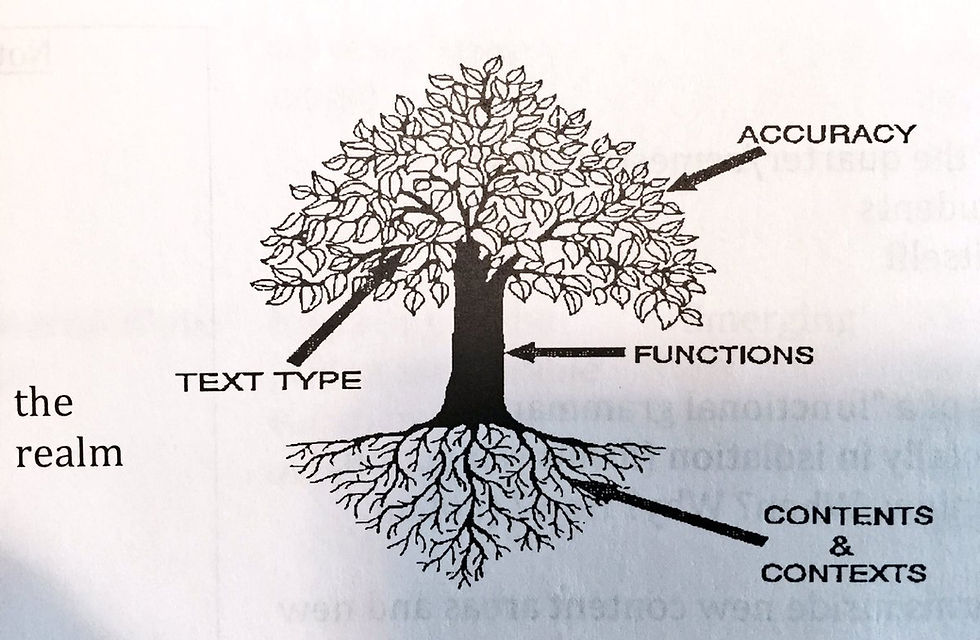Top 5 Take-Aways from ACTFL OPI Workshop
- Aug 9, 2016
- 3 min read
I had great expectations for our professional development workshop on the ACTFL OPI. It was our department’s way of kicking off the new school year, all on the same proficiency page. While our fellow colleagues lounged poolside enjoying the last days of summer, we spent a full day learning about the OPI with a certified ACTFL interviewer.
We presently administer the AAPPL to all of our modern language Spanish and French students at the end of the year. While we won’t be able to administer an OPI to all of our students (15 minute interviews for 80 students = madness or $$$) the workshop does have major implications for our teaching. Here are my top 5 takeaways from our OPI workshop.

Performance vs. Proficiency Of course these are two different words. The workshop prompted me
to consider how I am addressing these two different words distinctly in the language classroom. Performance is rehearsed and practiced, the situation is predictable. Proficiency on the other hand is by definition spontaneous. During the workshop, I was reminded that I need to make sure I am treating these two distinctly in class. Performance is a good lead up to proficiency.
Question Type I need to be careful to ask questions that solicit a specific text type sometimes instead of a specific grammar or vocabulary. For example instead of asking “What did you do yesterday?” think about asking about a specific event yesterday. The difference is that to the first questions students may respond with a list of sentences about yesterday that are possibly unrelated: I woke up. I ate breakfast. I came to school. I went to basketball practice. Whereas a different type of prompt: tell me all about basketball practice yesterday, prompts a narration of a past event; I went to basketball at 3:00 and I was already tired. But coach made us run a lot, so I was even more tired after that. Then I didn’t play very well. But at the end of practice, I was feeling better and played better. Of course, novice students are not going to be able to answer this way but as teachers we have to think about what our questions are reaching for, grammar or communication.
Conceptual/Partial/Full Mastery Students move from conceptual mastery of language, through partial understanding, and finally to full mastery. For example, students know that there are two to be verbs. That is conceptual understanding. However, they still say Soy enfermo but they say Estoy bien, and soy alto. They have a partial mastery of the SER vs ESTAR concept. Finally after many many hours/days/years of practice they have full mastery of a concept. According to ACTFL, learners spend the large majority of their time in the partial understanding of language concepts. Often our assessments are designed for students to demonstrate full mastery. However, we should really reconsider if that is reasonable. How long does full mastery take for certain linguistic concepts? I am going to make sure there is room for more partial mastery on assessments in my classroom.
Spontaneity and Circumlocution Proficiency is spontaneous. Skilled speakers know how to circumlocute on the fly when they forget a word. So, there needs to be more opportunities for spontaneous language production in the classroom and opportunities to develop circumlocution. Many of us already do this, but this workshop reminded me to move these to skills to center stage. Here are some ideas from a previous post to help add these to your classroom. Check out these two older posts about spontaneity and circumlocution.
The Tree is More than Accuracy The presenter placed a really great diagram on the screen. It was

a tree that represents language production. It shows that accuracy is only one portion of production. While I think our rubrics that we use presently to assess do a good job of taking into account, function, content, and accuracy, I am not sure that we ever focus on text type (narration, description, opinion, hypothesis, etc.) or contexts. We will definitely spend some time considering how to more adequately incorporate those pieces of language production and giving them their due attention.


































Comments